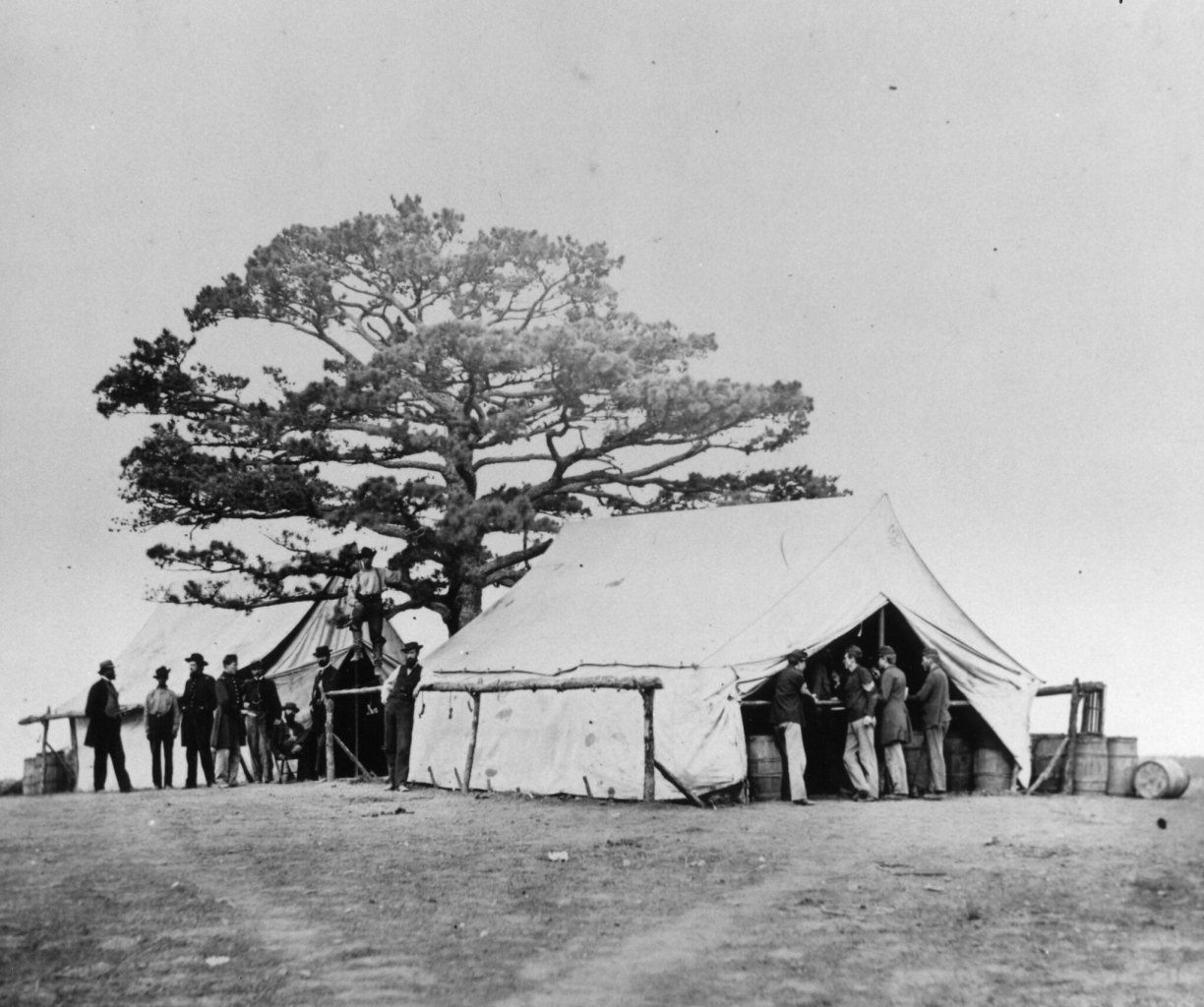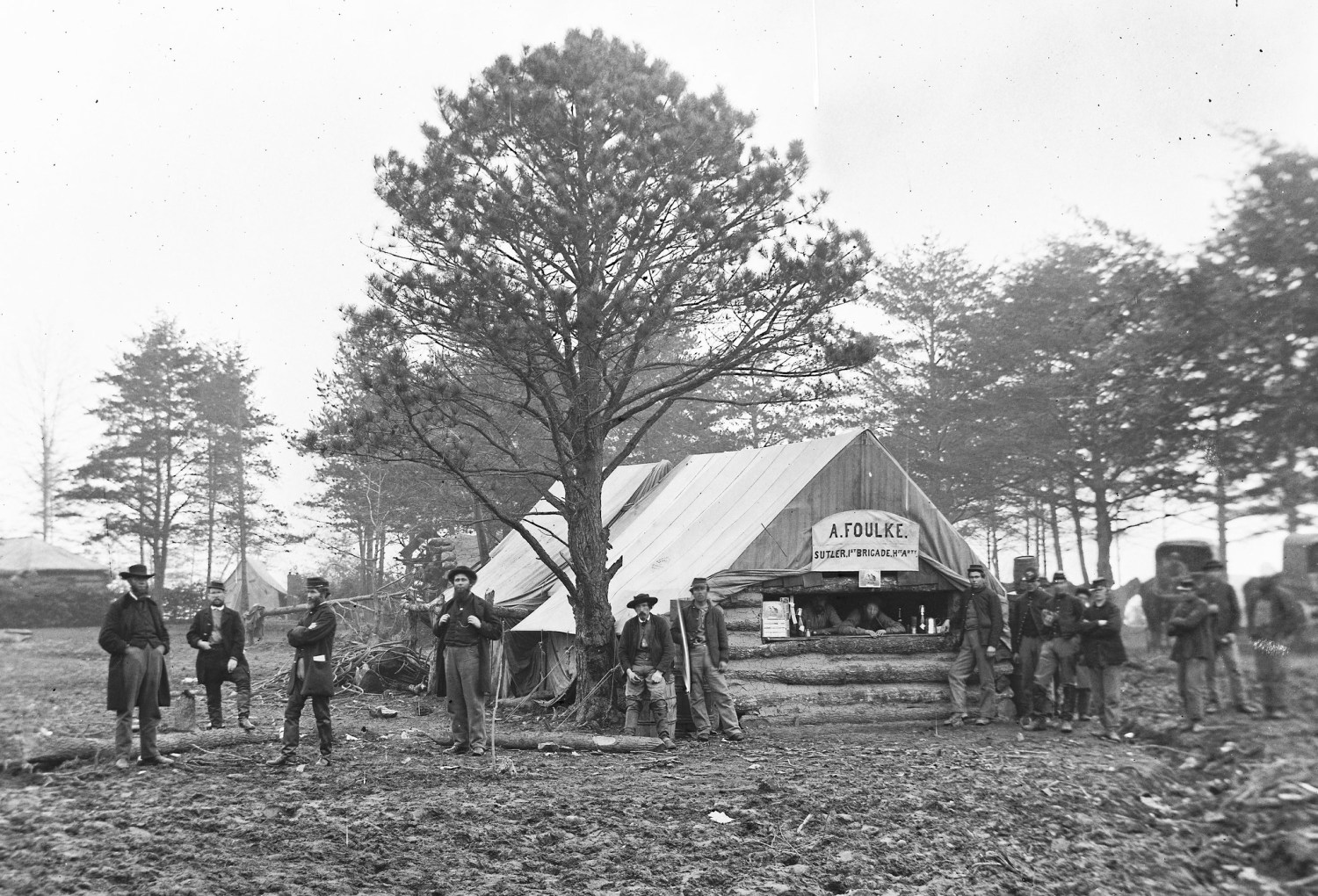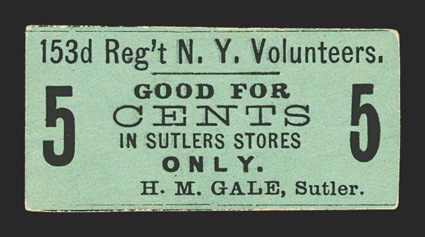On July 25, the Exchange will celebrate its 130th anniversary. But the seeds for what became the Exchange were sown more than 100 years before 1895.
On June 30, 1776, the American Articles of War enacted rules and regulations for “civilian traders [who] were given sales commissions to supply General Washington’s army with chewing tobacco, snuff, blankets, knives and other items of ‘ordinary use.’”
Civilian trading with the military dates as far back as ancient Rome. In America, it began during the French and Indian Wars of 1689 to 1763. The traders became known as “sutlers” or “hawkers,” defined as those “who follow an army and sell to the troops provisions.”

Under the regulations for the government of the Army during the Revolutionary War, each post or regiment was typically authorized to appoint one sutler, who could sell to troops on credit. When a Soldier’s debt was unacknowledged, the paymaster was authorized to deduct the amount from the Soldier’s pay and pass it along to the sutler.
Under the General Regulation for the Army (1835), provisions were made for sutlers to receive warrant appointments from the secretary of war. Sutlers were considered to be superior to all enlisted Soldiers but had no authority over noncommissioned officers or Soldiers. Sutlers had a four-year term of office, overseen by a post council or administration. The sutlers were assessed a fee per officer and assisted Soldier. Money from the fees provided the basis for the post fund, which was to be used for recreation and welfare.

Sutlers made a lot of their money from liquor sales, and because of the potential for higher profits, they often encouraged Soldiers to buy liquor, which frequently led to drunkenness among the troops. Sutlers also tended to sell shoddy merchandise to troops at high prices. Abuses such as these increased during the Civil War.
In 1866, Congress determined that the sutler system was corrupt and passed an act to abolish it. The act, which was to become effective July 1, 1867, designated the subsistence system of the Army to perform what had been sutlers’ functions.
Before the act went into effect, Congress passed a joint resolution on March 30, 1867, authorizing the establishment of the post trader stores on military installations. Rules of operation differed little from those governing sutlers, though the post traders gave the impression of greater permanency in their operations than their predecessors.
We’ll have more on post traders in next week’s #FlashbackFriday.

Sources: “One Hundred Years of Service: A History of the Army and Air Force Exchange Service”; Exchange History on Flickr; Exchange Post archives



Leave a Reply